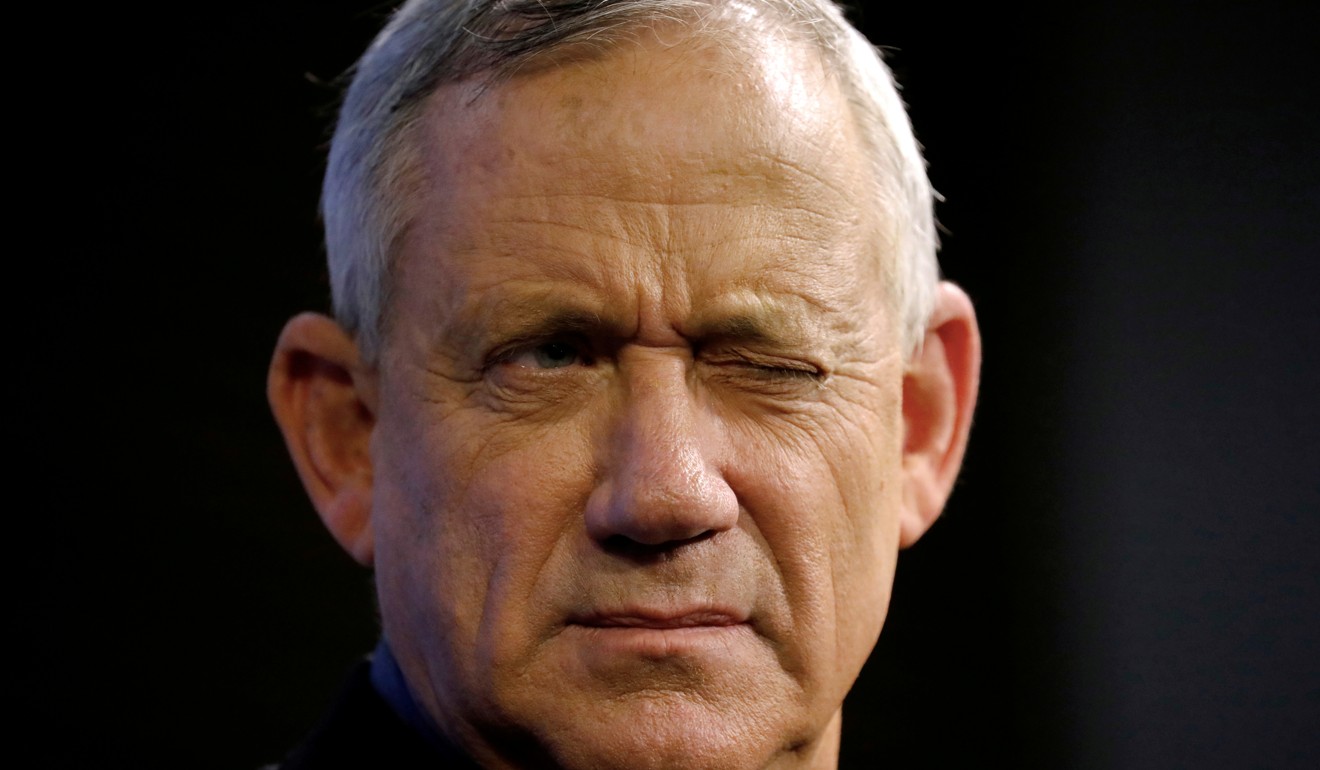
Israel to hold rerun elections in September as Benjamin Netanyahu fails to form coalition
- Chaotic developments cast a cloud over the political future of Benjamin Netanyahu
- Development also darkens already dim prospects for a Middle East peace deal

Israel slid into political chaos Thursday after scandal-ridden Prime Minister Benjamin Netanyahu failed in his efforts to form a new coalition government – and moved to make sure his main rival wouldn’t get to try to do so in his stead.
That means that only seven weeks after the last Israeli election, a new one is now on the horizon.
The chaotic developments not only cast a cloud over the political future of Netanyahu – a Houdini-like figure who in the past has been able to wriggle his way out of almost any political tight spot – but also darkens already dim prospects for a Mideast peace deal, which US President Donald Trump’s son-in-law, Jared Kushner, has been tasked with crafting.
The bizarre second-election scenario, the first of its kind in the country, was set in motion when Israel’s Knesset, or parliament, held a late-night vote to dissolve itself, with the prime minister having missed a deadline to form a governing coalition.
To do that, he would have needed to cobble together a majority in the 120-seat chamber. Israeli President Reuven Rivlin had given him six weeks to form a government, with a deadline of midnight Wednesday.
If that deadline had passed, Rivlin would have given another lawmaker, almost certainly Netanyahu’s main electoral rival, former military chief Benny Gantz, a chance to put together a coalition.
The self-dissolution of parliament was the first step toward holding a new nationwide vote, now set for September 17.
The political debacle began with the previous vote: an April 9 election that at first looked like another of Netanyahu’s trademark narrow escapes.

In that vote, his Likud party won 36 parliamentary seats, barely squeaking past the second-place Blue and White party, which garnered 35 seats.
Neither was nearly enough for a majority.
But Netanyahu’s allies on Israel’s political right also won significant numbers of seats, so he appeared to have enough support to form a coalition government and keep his job as prime minister. That proved a massive miscalculation.
Amid bitter infighting, the prime minister was unable to cobble together the 61 seats he needed, and now the April vote will become the first in the country’s history not to produce a government.
In the meantime, Netanyahu – who has been prime minister for a decade and dominated the Israeli political scene for nearly a generation – will remain in his post, presiding over an interim government as Israelis confront a long summer of electioneering.
Netanyahu is also facing possible indictment for bribery, fraud and breach of trust in the months ahead and is reportedly seeking legislation in the new parliament that would result in him being granted immunity.
The prime minister stands accused of improperly accepting expensive gifts, ordering government action aimed at hurting one newspaper in exchange for favourable coverage from another, and helping a telecommunications company get regulatory concessions.
He has denied any wrongdoing and denounced investigations as a witch hunt.
With charges looming, he appears set to become the first Israeli prime minister to be indicted while in office – even as he remains on track in July to surpass David Ben Gurion, Israel’s founding father, as the country’s longest-serving prime minister.
Additional reporting by Agence France-Presse